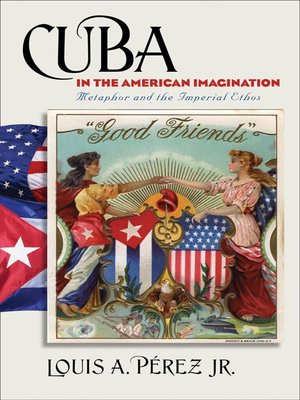Cuba in the American Imagination
audiobook (Unabridged) ∣ Metaphor and the Imperial Ethos
By Louis A. Pérez, Jr.

Sign up to save your library
With an OverDrive account, you can save your favorite libraries for at-a-glance information about availability. Find out more about OverDrive accounts.
Find this title in Libby, the library reading app by OverDrive.



Search for a digital library with this title
Title found at these libraries:
| Library Name | Distance |
|---|---|
| Loading... |
For more than two hundred often turbulent years, Americans have imagined and described Cuba and its relationship to the United States by conjuring up a variety of striking images--Cuba as a woman, a neighbor, a ripe fruit, a child learning to ride a bicycle. One of the foremost historians of Cuba, Louis A. Pérez Jr. offers a revealing history of these metaphorical and depictive motifs and discovers the powerful motives behind such characterizations of the island.
Pérez analyzes the dominant images and their political effectiveness as they have persisted and changed since the early nineteenth century. Drawing on texts and visual images produced by Americans ranging from government officials, policy makers, and journalists to travelers, tourists, poets, and lyricists, Pérez argues that metaphor was central to the U.S. imperial project as a way of transforming the pursuit of national self-interest into the lofty, disinterested purpose of moral duty. With particular focus on the pivotal eras of the war of 1898 and the 1959 Cuban revolution, Pérez demonstrates that these descriptions served the foreign policy interests of the United States. As charged and coded modes of persuasion and mediation, these images sanctioned and sustained the moral logic of U.S. power over Cuba. Pérez further argues that the metaphors in service to America's imperial impulses over Cuba were subsequently projected over the world at large.







